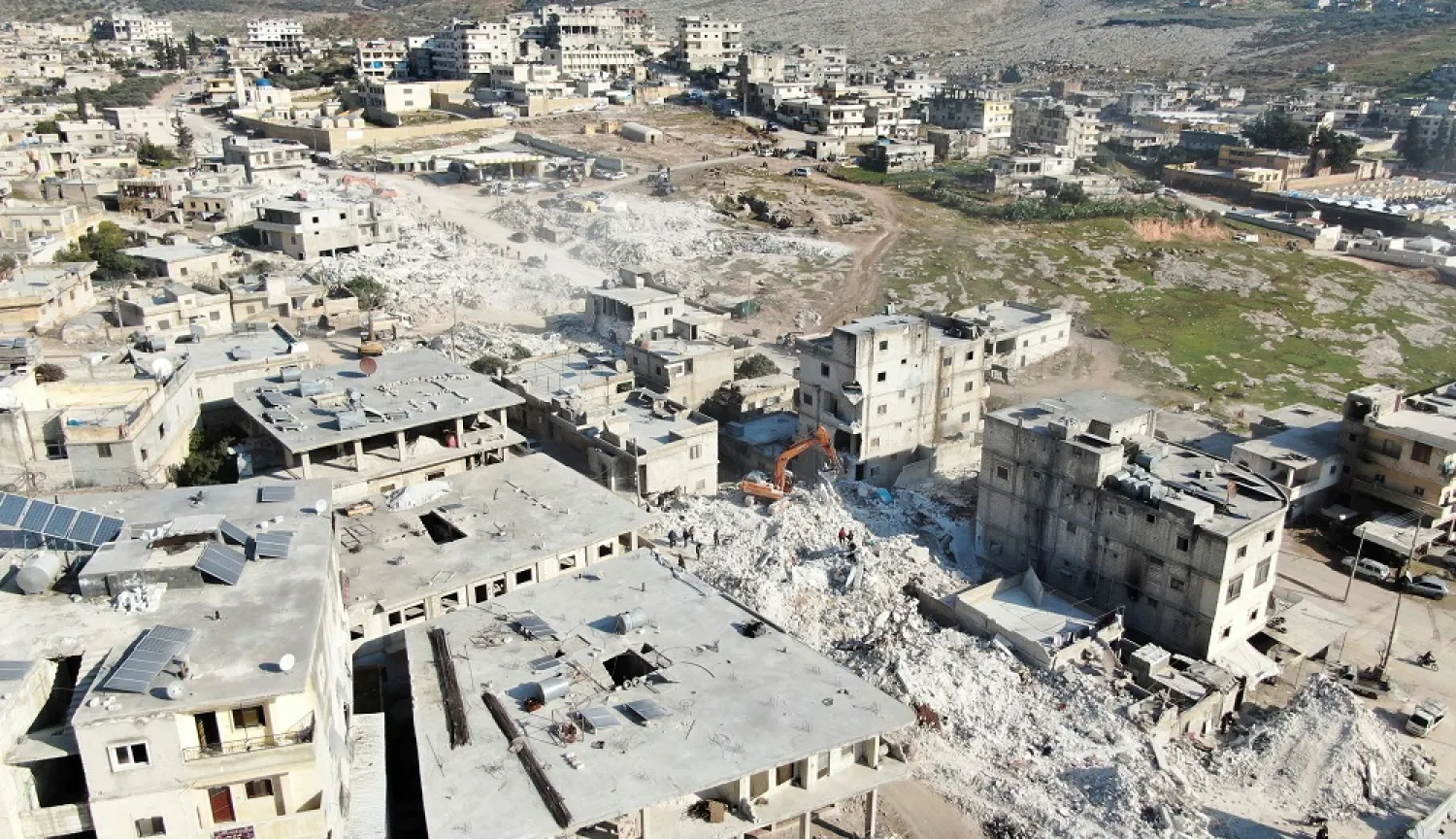While his wife and two daughters lay under the rubble after Syria's earthquake, Abdelbaset Khalil tended to hundreds of patients who flooded into his hospital.
Khalil, a nurse anaesthetist, was already at work when the 7.8-magnitude earthquake rocked Türkiye and Syria last week, flattening entire neighborhoods and leaving a combined death toll of more than 35,000, including at least 3,581 in Syria.
As the quake shook the ground beneath him, he rushed out of the hospital to find his apartment building had collapsed with his family inside.
Speechless and overwhelmed, the 50-year-old walked back to the hospital ward to an endless flow of patients and victims' bodies, including those of the hospital's administrative director and head nurse.
"I was tending to people in the hospital while my wife and daughter were under the rubble," Khalil told AFP in the city of Harim in the opposition-held Idlib province on the border with Türkiye.
"I could not do anything" to save his wife or daughters, he continued.
He carried on working through his grief, scrambling to help the countless wounded with few supplies and meager means.
The first day was "extremely trying and very hard", said Khalil. "It passed like 50 years."
On Wednesday, the bodies of his family members were recovered, leaving him sleepless and with a sense of "total helplessness", he said as he flipped through pictures of them on his phone.
His only solace was that he buried them in their hometown.
"I will always be able to visit."
'Catastrophic'
Shortly after the quake, ambulances rushed to Harim hospital which was quickly inundated with patients.
"It's a field hospital with modest and simple equipment," said general surgeon Mohamed al-Badr.
"It could accommodate no more than 30 patients."
He said the hospital was originally built to treat the wounded of Syria's long-running conflict, which broke out nearly 12 years ago.
"The situation was already so difficult that patients were often sleeping on the floors and in corridors."
Since Monday's disaster, the hospital has received about 2,500 wounded, of whom 390 died, according to orthopedic surgeon Hassan al-Hamdo.
"Multiple cases needed a CT scan but they're not available anywhere in the region," said Hamdo.
Supplies have been slow to arrive in war-torn Syria, where years of conflict have ravaged the healthcare system, especially in the opposition-held areas in the country's northwest.
In a Friday report, the International Rescue Committee warned of a public health breakdown in northwest Syria.
"Facilities are now running low on critical medical supplies such as serums, gauze bandages, painkillers, medical plasters and blood bags," it said.
Other urgent needs include fuel for generators and burial bags, it added, warning of worsening conditions due to the harsh weather and "freezing temperatures".
"Unless we get more funding, supplies and unrestricted humanitarian access urgently the results could be catastrophic," it said.
Calls for aid
In the border town of Salqin, Hassan Joulak, a specialist in orthopedic surgery, said his hospital was treating between 800 and 1,000 injured people, most of them with bone fractures.
"Fifteen minutes after the earthquake, the wounded began to arrive in large numbers, overwhelming the hospital's capacity," he said.
The challenges are not limited to opposition-held areas, as even in regime-controlled parts of Syria hospitals are critically short of skilled medics and proper equipment.
"Almost 50 percent of healthcare facilities are not functioning," according to Ahmed Al-Mandhari, the World Health Organization's regional director for the eastern Mediterranean.
"Those which are functioning are lacking equipment, lacking staff, lacking medications."
On Sunday, the United Nations denounced the failure to deliver desperately needed aid to Syria.
In the government-held coastal city of Jableh, five doctors were killed in the disaster and the city's only hospital was severely damaged, according to hospital head Mohamed al-Khalil.
Despite the lack of aid and its limited capacity, the hospital continues to operate, even as many medics "lost their homes", he said.
















